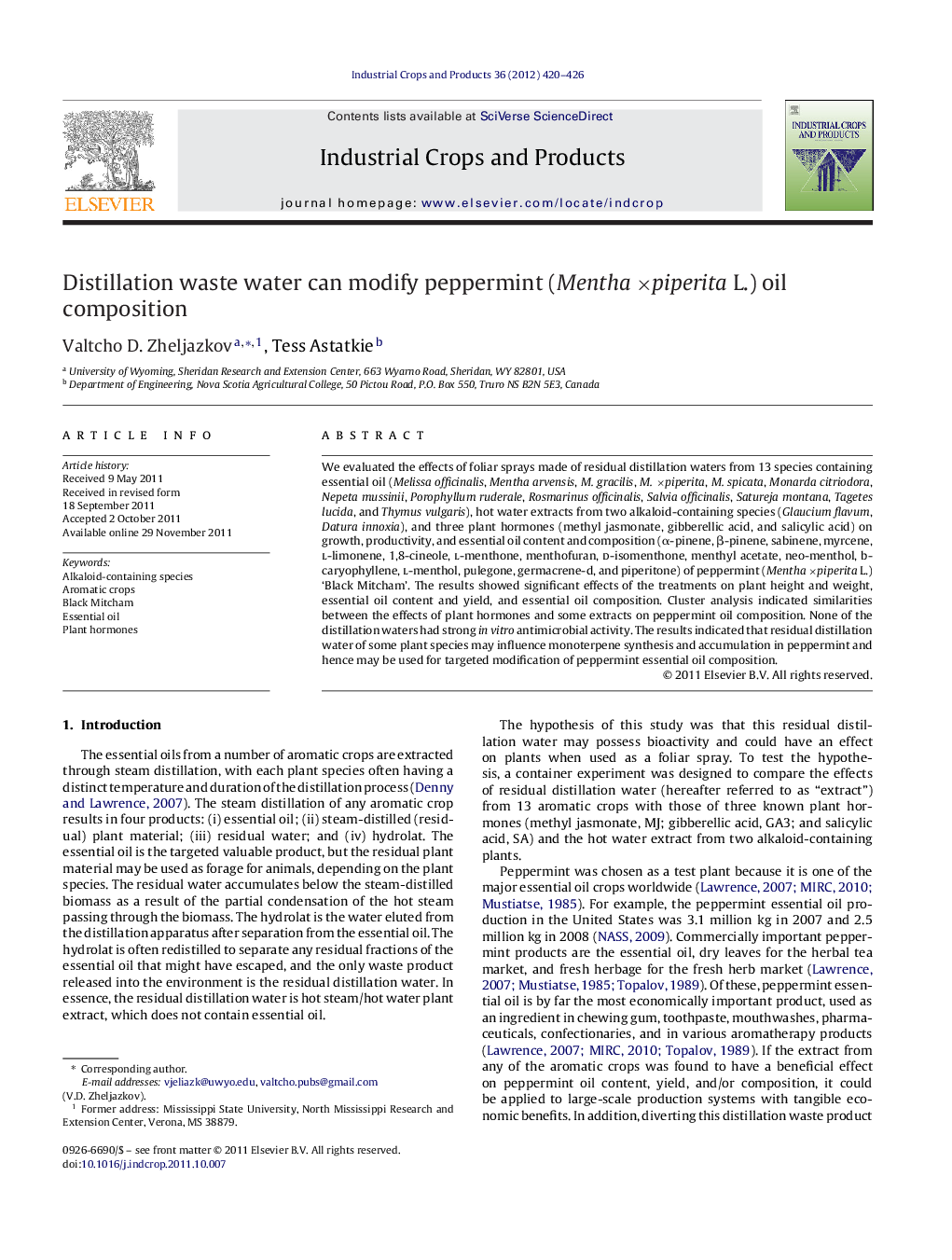| Article ID | Journal | Published Year | Pages | File Type |
|---|---|---|---|---|
| 4514405 | Industrial Crops and Products | 2012 | 7 Pages |
We evaluated the effects of foliar sprays made of residual distillation waters from 13 species containing essential oil (Melissa officinalis, Mentha arvensis, M. gracilis, M. ×piperita, M. spicata, Monarda citriodora, Nepeta mussinii, Porophyllum ruderale, Rosmarinus officinalis, Salvia officinalis, Satureja montana, Tagetes lucida, and Thymus vulgaris), hot water extracts from two alkaloid-containing species (Glaucium flavum, Datura innoxia), and three plant hormones (methyl jasmonate, gibberellic acid, and salicylic acid) on growth, productivity, and essential oil content and composition (α-pinene, β-pinene, sabinene, myrcene, l-limonene, 1,8-cineole, l-menthone, menthofuran, d-isomenthone, menthyl acetate, neo-menthol, b-caryophyllene, l-menthol, pulegone, germacrene-d, and piperitone) of peppermint (Mentha ×piperita L.) ‘Black Mitcham’. The results showed significant effects of the treatments on plant height and weight, essential oil content and yield, and essential oil composition. Cluster analysis indicated similarities between the effects of plant hormones and some extracts on peppermint oil composition. None of the distillation waters had strong in vitro antimicrobial activity. The results indicated that residual distillation water of some plant species may influence monoterpene synthesis and accumulation in peppermint and hence may be used for targeted modification of peppermint essential oil composition.
► Residual distillation water, plant extracts, and plant hormones were foliar applied to peppermint. ► Some plant extracts influenced essential oil composition. ► Methyl jasmonate and M. gracilis extract increased l-menthol in the peppermint oil.
